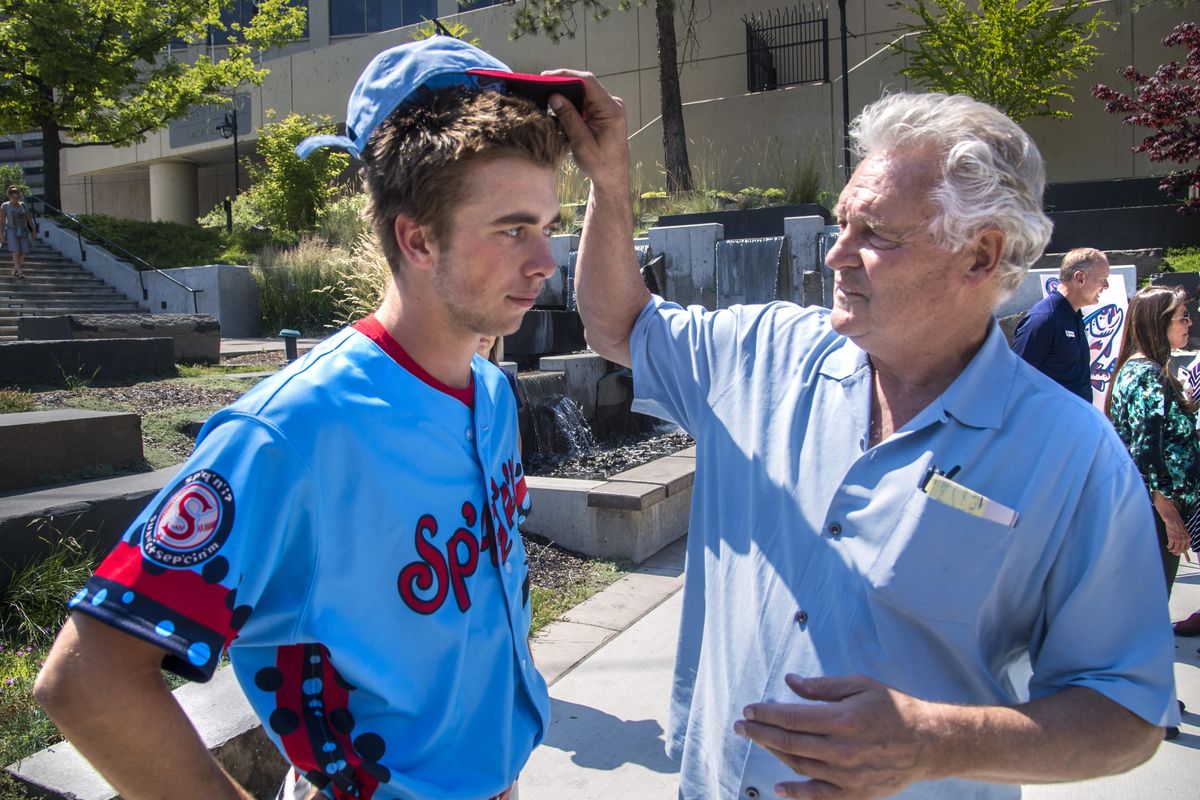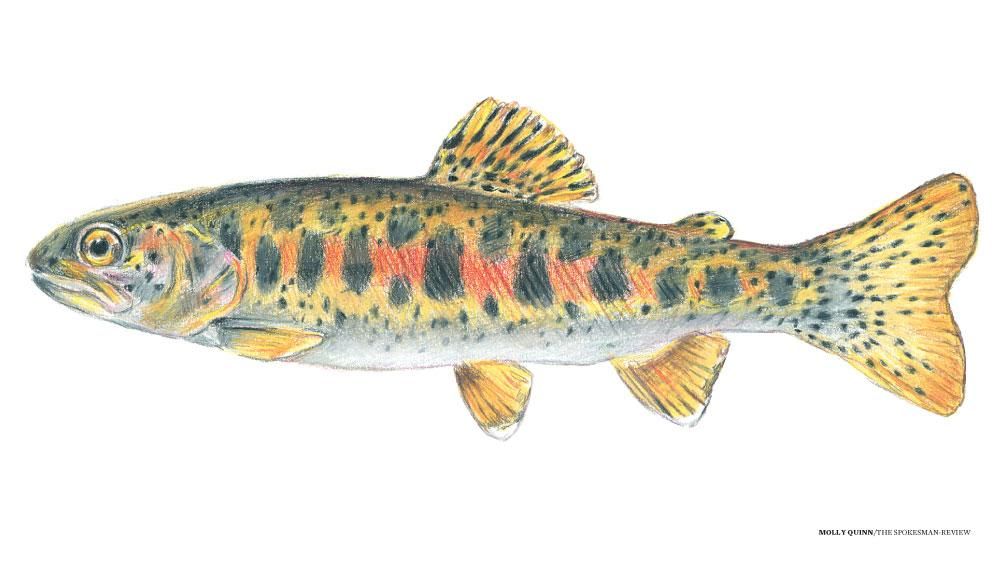Spokane Indians roll out a new campaign to rally fans around the team – and a cause

Hard-fighting. Resilient. Part of Spokane’s identity. When the vice president of the Spokane Indians baseball team heard these words during a conversation last summer, he could have sworn they were talking about his players.
Instead, Otto Klein found himself deep in discussion about a fish.
In search of a new mascot to rally fans at the bottom of the sixth inning, Klein and his team sat down last year to think about what was important to the Indians and the city of Spokane – not to mention the Spokane Tribe, whom the team endeavors to include and honor in many of its promotions. Inspired by the city’s recent investments in conserving and caring for the river, Klein said he looked to the river habitat for something that would speak to the community.
That’s how, in conversation with Brent Nichols, the fisheries program manager for the Spokane Tribe, Klein learned about the redband rainbow trout – and knew he found his mascot.
“The more I really talked with people, they told me that this is Spokane’s signature fish,” he said. “We don’t have salmon in our river anymore, but we do have this vibrant redband trout and that’s what we should celebrate.”
The redband trout is native to Spokane and historically comprised a significant part of the Spokane tribe’s diet. Though not threatened, the redband population concerns conservationists because it has struggled to return to historic levels due to invasive predatory species and the impact of the Grand Coulee Dam.
The team, members of the tribe, and Mayor David Condon gathered Wednesday to reveal the newly designed team jerseys, caps, and rally bands at the Spokane Tribal Gathering Place next door to City Hall. In a statement, Condon said the Indians’ new promotional campaign highlights the work the city is doing to improve the river’s health in a way that will connect with “our youth who will be responsible for caring for our river well into the future.”
The jerseys are a shimmery blue reminiscent of the river, marked down the sides with the black and red speckles of the redband. On one arm, the traditional Indians logo in Salish, and on the other a newly designed logo of a jumping trout.
In addition to the team’s alternate uniforms, which will be worn five times this summer before being auctioned off, Klein said fans will receive free rally bands – similar, he said, to the paper crowns distributed by Burger King – to wear as they cheer on their new mascot.
Rally mascots are not uncommon in sports, coming in to give the fans something to cheer for, but the team wanted to make sure the mascot was something meaningful, Klein said.
“That’s something that’s really important to us,” he said. “That our promotions have meaning and depth.”
Klein said the Spokane tribal council “really embraced” the team’s choice of the redband.
Impressed by the new logo and the campaign, Nichols said he asked to emblazon it on a new research vessel his team had purchased, which the Indians allowed. The boat, named Big Dog in honor of researcher Randy Peone who died in a car accident last year, will trawl the shallows to aid in conservation efforts.
“(The campaign) will get our concerns out to the tribe, the general public and anglers,” said Nichols, who plans to use the boat in the tribe’s own educational outreach.
Money raised from the auction of the jerseys will be managed by the Inland Northwestern Community Fund, which will distribute it to local beneficiaries that work to conserve the river, like Trout Unlimited and Spokane Riverkeeper. Fans will also be able to donate money via text, Klein said. Though he said he would love it if they raised $10,000, Klein emphasized the campaign is more focused on celebrating the river.
The new mascot and the redband jerseys will make their first appearance at Avista Stadium during the home game July 8.

